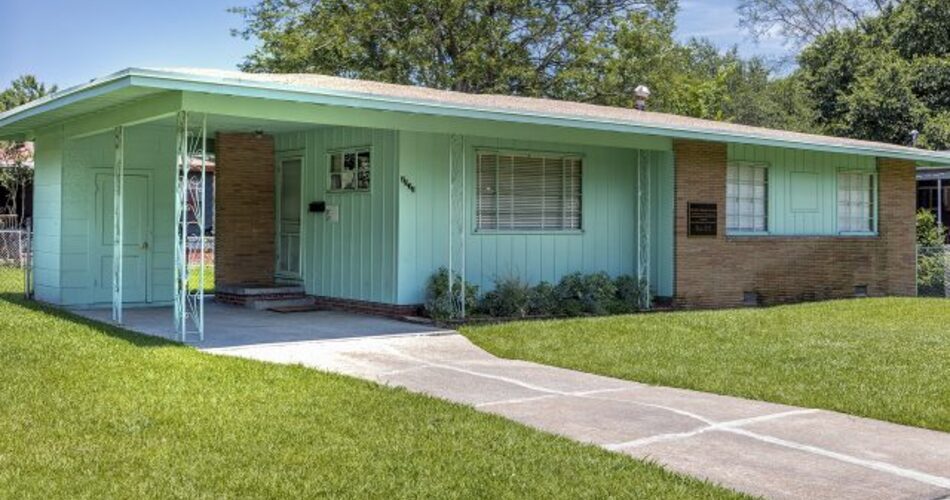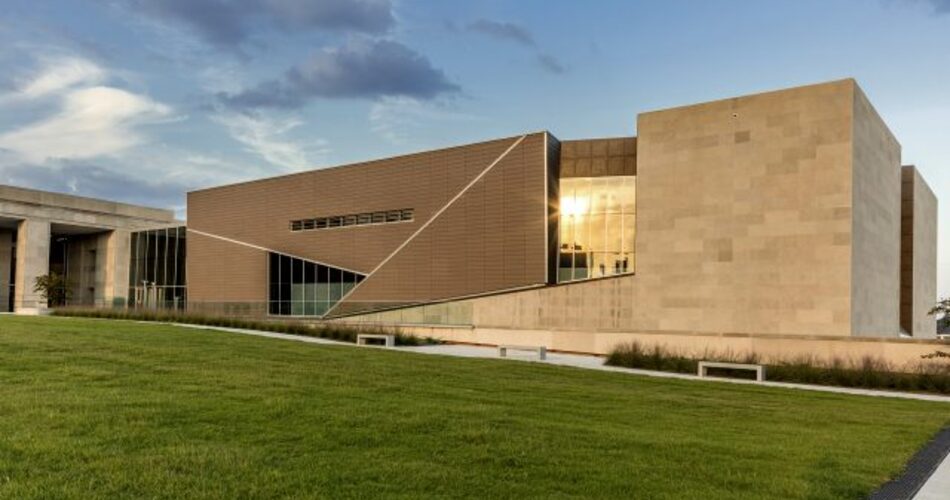Of all the states, Mississippi and the infamous events that happened there offered the first glimpse to the world into the nation’s racism and the powerful stories of those fighting against it
From the home of civil rights activist Medgar Evers and the Mississippi Civil Rights Museum in Jackson to the Tallahatchie County Courthouse, the site of the trial of the two men accused of murdering Emmett Till, Mississippi offers many opportunities to learn about the history of the civil rights movement.
Mississippi Civil Rights Museum
Located in Jackson, the Mississippi Civil Rights Museum gives students the opportunity to explore the intricate history of the civil rights movement and learn about the individuals that took the courageous steps towards equality for all, including Medgar Evers, Fannie Lou Hamer and Vernon Dahmer, as well as those who traveled long distances to stand beside them. Opened in December 2017, the museum features eight galleries with exhibits ranging from a timeline illustrating the history of Africans in Mississippi, slavery and the origins of the Jim Crow era to mug shots of every Freedom Rider arrested in Mississippi.
Emmett Till Historic Intrepid Center
Established in August 2005 by Glendora Mayor Johnny B. Thomas, the Emmett Till Historic Intrepid Center, also known as ETHIC, houses educational information about past atrocities in the hopes of creating a brighter future. The first and only museum dedicated to Emmett Till tells the story of Till, an African American boy who was abducted, tortured and lynched in Mississippi in 1955 at the age of 14, after being accused of offending a white woman, Carolyn Bryant, in her family’s grocery store. The murder of Till became an emblem of the civil rights movement. The mission of ETHIC is to provide a penetrable, thought-provoking and educational experience to preserve and promote the historical and cultural heritage of the Town of Glendora, Tallahatchie County and the state of Mississippi in the continued struggle against civil and human wrongs. Groups of 10 or more can book tours through their website.

Medgar Evers Home Museum
Medgar Evers Home Museum
Built in 1956, the Medgar Evers Home Museum was the home of African American civil rights activists Medgar and Myrlie Evers. The house stands in northern Jackson in an area that was developed as the first planned middle-class subdivision for African Americans in Mississippi after World War II. The house was purchased new by the Evers in 1956 and remained their home until 1963. The couple were both civil rights activists and had for some time been targets of racist violence. Medgar became the NAACP’s first full-time state field secretary in 1954, monitoring, collecting and publicizing data concerning civil rights violations. Despite threats to his life, he continued working toward equal rights for all. In June of 1963, his life was cut short when he was gunned down in his driveway.
Tallahatchie County Courthouse in Mississippi
In September 1955, the Tallahatchie County Courthouse in Sumner hosted the trial of J.W. Milam and Roy Bryant for the murder of Emmett Till. The trial was described by journalist David Halberstam as “the first great media event of the civil rights movement.” On the fifth and final day of the trial, the jury deliberated for only 67 minutes before voting to acquit both Milam and Bryant. In 2007, the Emmett Till Memorial Commission offered a public apology to the Till family on behalf of the people of Tallahatchie County on the steps of the courthouse. This was the first such apology offered to the Till family from anyone in the state of Mississippi. The Tallahatchie County Courthouse was added to the National Register of Historic Places in 2007 and has been preserved as a museum, with the interpretive center across the street helping to tell the story.
Top photo: Mississippi Civil Rights Museum
Photos courtesy U.S. Civil Rights Trail
If you’d like to Get More Field Trip Ideas, be sure to Subscribe to Student Travel Planning Guide and Download our Current Issue for FREE






